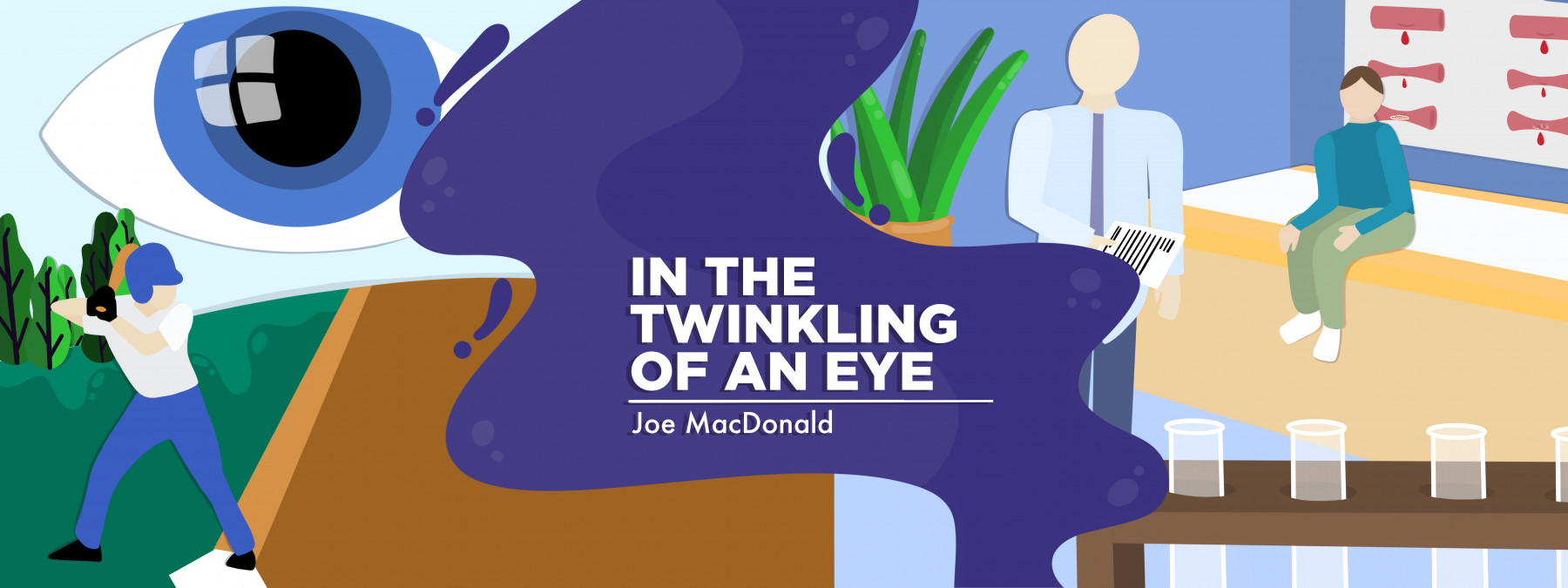Remembering when my first child had surgery to get a port-a-cath
How I put aside my feelings when my son's emotions were a higher priority
Written by |

My wife and I stood around my son’s hospital bedside, waiting for the anesthetist to come in and prepare my boy for surgery. My son Julian required a port-a-cath due to how much medicine had to be infused into his system daily. He was about 1 year old when we discovered a complication that sounded utterly foreign to us. In addition to hemophilia, Julian had developed a low-titer inhibitor.
A member of his medical team described the issue, comparing it with Pac-Man. When a nurse infused the missing factor VIII protein into Julian’s vein, scores of little monsters started munching away at the medicine, reducing its effectiveness. Somehow, this crude description made sense to my already oversaturated brain. I asked myself, “How much more did I need to learn about bleeding disorders?” I later learned that my journey had just begun.
While my wife, Cazandra, and I stood beside Julian, we smiled and made funny jokes to pass the time. The last thing we wanted was for our son to be upset. So while I cracked dad jokes and played with my boy, inside I felt like my stomach was playing a game of flip-flop.
My first thought was to grab my son and run from the hospital. However, I reasoned that the idea appeared foolish as he needed the surgery to implant the port-a-cath. My fears couldn’t take center stage now, as Julian’s well-being was the priority. First and foremost, my boy needed help, and I had to be the one always to provide strength in a time of crisis.
Early in my son’s diagnosis, I learned that my emotions had to wait till another time. My struggles with hemophilia and other issues as a caregiver, father, and husband needed to wait till I could deal with them. Because I had a strong ability to stuff my emotions so far down into the pit of my stomach that it took years to uncover, I proved to be the perfect person for my boy. I was able to suppress my feelings and handle emergencies as they came up.
Later, it took many years to unpack the emotional toll I experienced when caring for a loved one who faced a chronic illness. Then, I had to learn coping strategies to help me manage the chaos that surrounds an internal joint bleed or other issues related to my first son’s bleeding disorder. Therapy continues to be a valuable resource for me as I grow in my understanding of the many consequences associated with hemophilia.
As the doctor came in to help my son relax and prepare for surgery, I fought through my fear and played with my incredible boy. We laughed together as our noses touched, and I blew air kisses on his cheeks. Julian didn’t realize that I lifted up a quick prayer each time I felt his skin. I offered thoughts for an easy surgery, that this procedure would provide relief, and that my boy would find laughter at his dad’s expense. I hoped that the belly laugh I heard from my incredible boy might give me strength as he lay in the surgical room.
Through the surgery, Cazandra and I walked together, holding hands and talking about everything and nothing. Her presence kept me calm as we shared hopes and dreams for our family after Julian recovered. Sometimes, I didn’t hear the words, but found comfort in the melody of sound that seemed to pierce the fear that lay just below the surface of our conversation.
Julian came through the surgery with flying colors. All the anxiety I’d felt before his operation subsided as Cazandra and I took our places beside his bed. I stroked his hair and began to sing a song to comfort him. At that moment, I felt nothing but joy and peace. For now, we’d jumped through another hoop as we journeyed together on this great road known as hemophilia.
Note: Hemophilia News Today is strictly a news and information website about the disease. It does not provide medical advice, diagnosis, or treatment. This content is not intended to be a substitute for professional medical advice, diagnosis, or treatment. Always seek the advice of your physician or another qualified health provider with any questions you may have regarding a medical condition. Never disregard professional medical advice or delay in seeking it because of something you have read on this website. The opinions expressed in this column are not those of Hemophilia News Today or its parent company, Bionews, and are intended to spark discussion about issues pertaining to hemophilia.




Leave a comment
Fill in the required fields to post. Your email address will not be published.